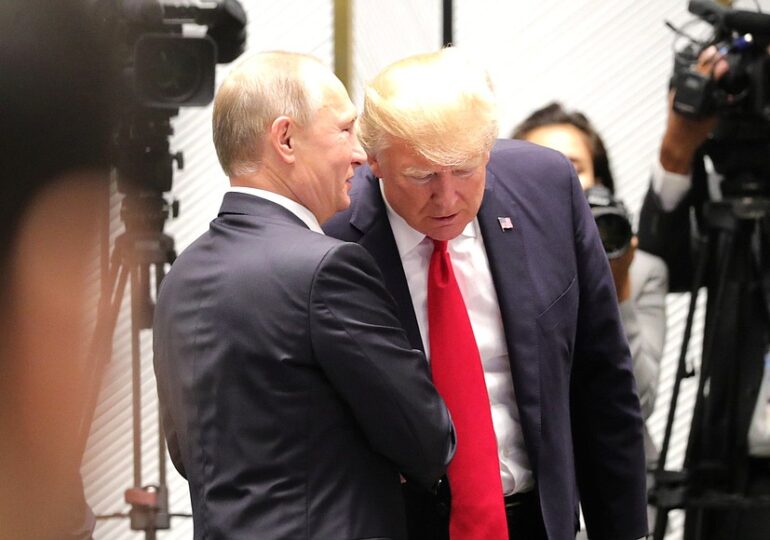In Moscow, Trump’s threats are not taken seriously. Russia’s political and business elites are convinced that discussions about new sanctions will remain just that – discussions.
Does Vladimir Putin believe that Donald Trump has truly changed his stance towards Russia and Ukraine and is now preparing to follow a new policy? The answer is no, writes in an analysis for Kyiv Post Mikhail Zygar, a Russian journalist and writer with an arrest warrant issued by Russian courts in absentia.
- Trump, ultimatum for Putin. Gave him 50 days to reach a peace agreement. Otherwise, he faces tariffs of 100%
- Trump scolded Zelenski in the Oval Office, now understands him. But still believes in Putin
Putin attributes Trump's entire political approach to a series of emotional changes. A period of cooling will inevitably be followed by one of closeness, and Trump will continue to alternate between playing the role of the good cop and the bad cop.
The fluctuations may become more pronounced, but from Putin's perspective, it is nothing more than emotional blackmail. He expects Trump's threats and flatteries to continue.
Is the Russian political elite alarmed that Trump and Zelenski discussed attacks on Moscow and St. Petersburg? On the contrary.
The way the information was reported - and immediately denied by the White House - has only convinced Russia's political elite that the issue is not serious. High-ranking Russian officials, such as former President Dmitry Medvedev, and the Russian propaganda machine regularly threaten nuclear attacks against the US and EU. Everyone understands that this is just a threat.
In this context, the timid question posed to President Zelenski about possible attacks sounds like a threat that will never materialize. Moscow is absolutely certain that Europeans fear Russian nuclear blackmail much more than Russians fear an attack on Moscow or St. Petersburg.
Primarily because Western public opinion would hardly accept civilian casualties in those cities – while in Russia, no one would ask for public opinion. Public opinion, as a concept, has not existed in Russia for many years.
Sanctions, completely unrealistic
So, does Vladimir Putin take Trump's ultimatum seriously that, starting in September, additional sanctions and severe tariffs will be imposed on countries that purchase Russian oil?
No, because in Moscow, this is considered completely unrealistic. Any real sanctions on Russian oil or gas would have a catastrophic impact on the global energy market. Gasoline prices would skyrocket in the US, and Putin believes that Trump cannot afford this.
The US also cannot afford to punish the main importers of Russian oil, which are currently China, India, and Turkey. Turkey is a key US ally in the Middle East, and launching a trade war with Turkey because of Russia – at a time when Syria, Iran, and Israel are at stake – would be extremely irrational.
Attacking India for the same reason also seems bizarre, as India is a major power in the Global South with which the US currently has no issues. Creating a conflict from scratch would likely be unwise.
As for China, the US simply has no additional leverage – a large-scale confrontation is already underway and cannot be further escalated.
Russia has survived worse situations
From this point of view, Russia's political and business elites are convinced that discussions about new sanctions will remain just that – discussions. Furthermore, they believe that in the past three years, Russia has prepared so much for sanctions and adapted so well to isolation that a new regime of sanctions poses a low threat. They believe that Russia has survived worse situations.
From the perspective of Russia's ruling elite, Trump's political prospects are increasingly bleak, which means there is no point in making real political concessions in exchange for a passing agreement with the current president.
In one or three years, Trump may no longer be in the White House, while Putin - they believe - can easily survive.

